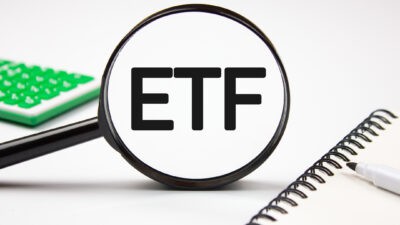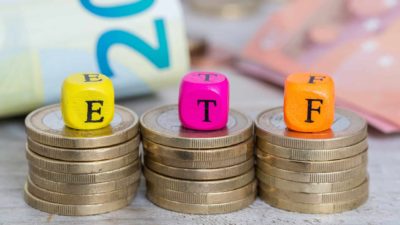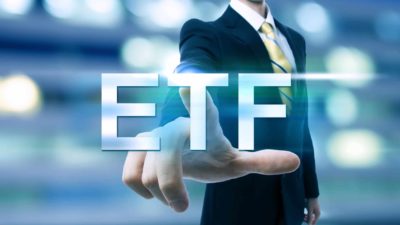The BetaShares Nasdaq 100 ETF (ASX: NDQ) has had a pretty decent week. Since 19 May, this exchange-traded fund (ETF) has put on a healthy 4.5%.
And since the start of March, unitholders have enjoyed close to 20% in returns. But those robust numbers continue as we zoom out on the time scale.
Over the past year, this Nasdaq 100 ETF has returned 30.8% to its investors. It has also managed to average 27.52% per annum over the past 3 years, and 26.35% per annum over the last 5. Since its inception in May 2015, investors have enjoyed a 21.57% return each year. These are the kinds of numbers to get anyone excited.
So what does this ETF cover? And how does it manage these impressive returns?
NDQ is an index fund at its core. It tracks the NASDAQ-100 (INDEXNASDAQ: NDX) index. This index is based on the US Nasdaq exchange, consisting of the top 100 companies by market capitalisation that list on the Nasdaq.
Unlike Australia, the US share market consists of multiple exchanges. The two largest of these are the Nasdaq and the New York Stock Exchange (NYSE).
What is the Nasdaq 100?
The Nasdaq has something of a reputation as the 'cooler younger sibling' of the NYSE. Whilst some of the US's oldest companies, think names like Ford Motor Company (NYSE: F) and General Electric Company (NYSE: GE), list on the NYSE, many of the US's younger, cooler companies instead flock to the Nasdaq.
This gives this index a very heavy bias in favour of tech companies.
Indeed, its largest holdings are none other than the mighty FAANG stocks. These consist of Facebook Inc (NASDAQ: FB), Amazon.com Inc (NASDAQ: AMZN), Apple Inc (NASDAQ: AAPL), Netflix Inc (NASDAQ: NFLX) and Alphabet Inc (NASDAQ: GOOG)(NASDAQ: GOOGL). You can throw Microsoft Corporation (NASDAQ: MSFT) in too.
Some other names on the Nasdaq 100 that don't have the same kind of world-dominating name recognition include NVIDIA Corporation (NASDAQ: NVDA), PayPal Holdings Inc (NASDAQ: PYPL), Tesla Inc (NASDAQ: TSLA) and Adobe Inc (NASDAQ: ADBE). Well, almost not as much.
The NDQ ETF holds all of these companies and 90 others.
So where do these ASX-beating returns come from? Well, the performances of NDQ's holdings. All of the FAANG stocks have had a spectacular few years. In the past 12 months alone, Apple shares are up 60.5%, Amazon is up 34% and Alphabet (C Class) has gained 70%.
Now, some might say that this stellar run can't continue forever for US tech shares. But many of these companies continue to put out impressive earnings growth rates, despite their size.
If any ASX investor feels their portfolio lacks exposure to US tech shares, this ETF could be an easy ASX solution. The NDQ ETF charges an annual management fee of 0.48%.









